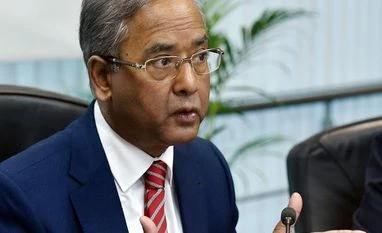Capital markets regulator Securities and Exchange Board of India (Sebi) can be unpleasant to the extent that it creates confidence but it must send across a message that nobody can go unpunished, its former chief U K Sinha has said.
Under Sinha, who retired last week after completing his six-year long innings, the Sebi earned an image of being 'harsh' with the market manipulators and defaulters -- a tag about which the former IAS officer has famously said that there was nothing to be "shy" about it.
Following Sebi's strong action against some large corporates for lapses on governance issues, Sinha was described by some as 'dragon' and of acting like 'activist', to which he had said that the companies should indeed be afraid about their investors resorting to activism.
In a case study on Sebi, done by Professor Suraj Srinivasan of the Harvard Business School along with Research Associate Radhika Kak, Sinha has now shared his thoughts and experiences of helming the markets regulator.
"Sebi's task is to strike a very delicate balance between being very tough and theoretical on the one side and ensuring that it is not disruptive.
"Anyone with reasonable intelligence can decide what needs to be done and prescribe that, but if measures are undertaken in the wrong way, they can be so disruptive that they will defeat the purpose they set out to achieve," Sinha said.
As per the study, Sinha was reflecting on his tenure as the chairman of Sebi.
More From This Section
"It was February 2016 and he had just been appointed by the Government of India to a second term as the chairman of Sebi," it said.
In his last press meet as Sebi chief on February 27 this year, Sinha had made it clear that the regulator does not have to feel shy for taking "harsh" action against violators.
In the study, Sinha further said the momentum of capital markets can easily be disturbed by one incident of market misconduct.
"Trust and faith can quickly erode. Our overarching goal is to remain alert, actively monitor market participants and anticipate future events, and act fast in cases of malfeasance. Maintaining trust is key," he said.
Talking about his tenure, Sinha said one of his key priorities was maintaining investor confidence in the markets.
"We need to not only maintain but also grow trust in capital markets. Law enforcement is critical. The first step is active surveillance, then supervision, and then enforcement. This means acting fast against evidence of malfeasance. People should realise that nobody can go unpunished," he said.
)